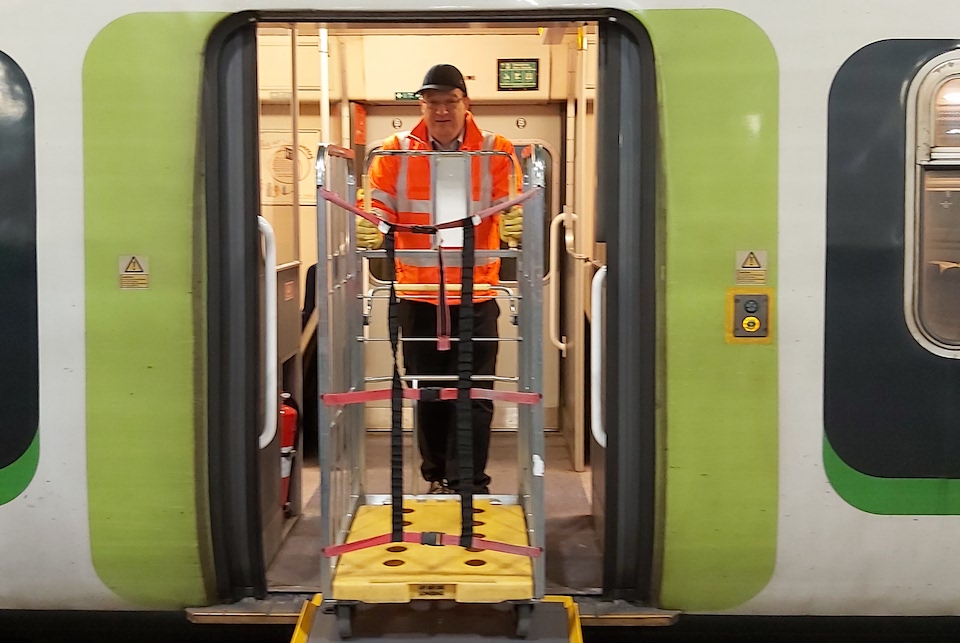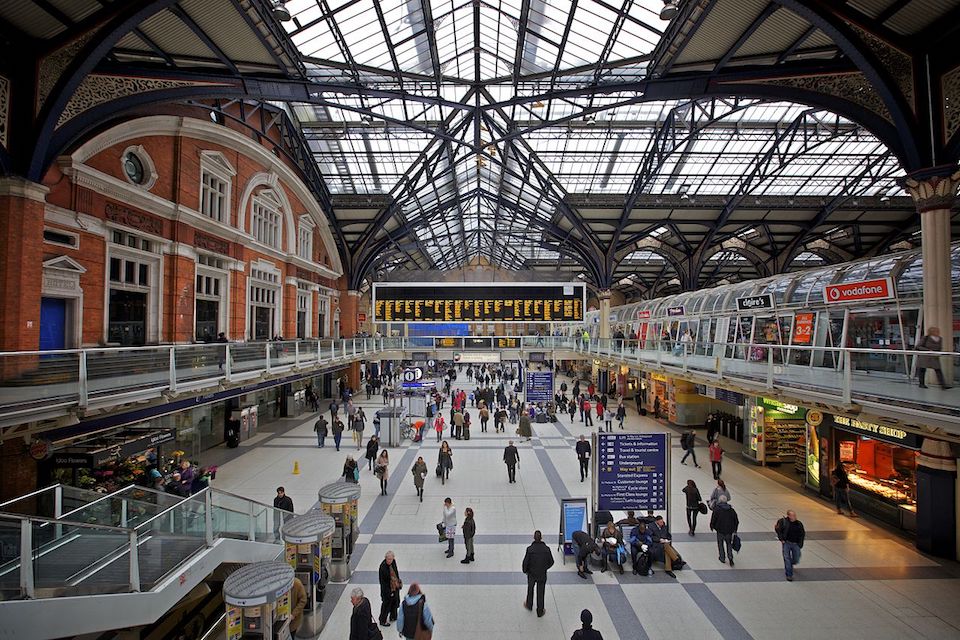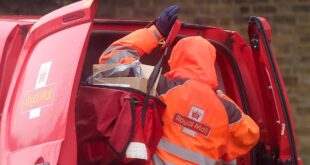It is second time around for the UK rail freight industry and European operators. Many are exploring innovative ways to bring back light goods and parcels traffic to the railways. Trials and proposals exist for a number of premium logistics services. Some are already running. However, the revival has been underway for almost a decade, and from a start in an unbecoming market town in Northamptonshire, England.
Kettering, 70 miles (130 kilometres) north of London might seem an unlikely place for a quiet revolution in rail freight. However, in 2011, its resident Jeff Screeton decided it was time to reboot Red Star, the former parcels-on-passenger-train network successfully operated by British Rail until privatisation.
Disputes and disbandment of services
The resurrection of Red Star was not without its challenges. The sell-off in the 1990s placed passenger services into a fragmented network of government-specified, private-sector operated franchises. Freight services were left with mostly private-sector operators. American-owned rail freight operator EWS initially struck a deal with the Royal Mail for a major expansion of the latter’s services through its “Railnet” programme, a £150m investment in new freight multiple units, high-speed locomotives and depots.
Disputes between EWS and the Royal Mail led to the traffic switching to road, and temporarily to GB Railfreight. The traffic volume never fully recovered, and even today the services normally operate at less than half of the fleet capacity.
Negotiations painfully slow
EWS also successfully launched a high-speed overnight service for Securicor Omega Express in 2000 between the Midlands and Scotland, but acquisition of that company by DHL led to the multi-national parcels company divesting itself of all rail-related interests in the UK. A further attempt by a new entrant, Advenza, to launch trainload express freight services in the UK around this time similarly failed to launch, but one of its team, Jeff Screeton, was undeterred. Enter 5PL Ltd, which was subsequently renamed InterCity RailFreight.
“initial dialogue with the train operating companies was painfully slow”, explained Screeton, who felt that there was resistance to carrying anything other than passengers. “To its credit, the Department of Transport has been very supportive, helping develop new operating and security protocols. Eventually, East Midlands Trains (now East Midlands Railway) agreed to start some limited proof-of-concept trials, and we were in business.”
Last mile legitimacy
Screeton engaged with local couriers WEGO to cover the first-mile and last-mile legs. “The appeal of WEGO was that they completely got where we were coming from”, he said. “They were investing in electric vans and cargo bikes, further enhancing the low-carbon credentials of rail for freight.”

Since 2011 services have expanded across other train operating companies, carrying everything from live Cornish lobsters to life-saving medical treatments.
Enviable reliability
InterCity RailFreight now runs up to 30 trains per day, and returns, across multiple main line corridors. They use secure and spare paths across a network of 125 miles per hour (200 kilometres per hour) trains, running at an average of around 70 mph (110km/h). Their reliably is an enviable 97 per cent within 15 minutes of schedule). On some routes, a zero-emission door-to-door service is now offered, combining electric trains with electric delivery vehicles. The company has collected industry awards and ISO certification, helped by a zero deliveries lost record over ten years of service.
The concept is beginning to spread across the globe. In 2012 and 2014 consultants Intermodality organised trials of overnight express freight services into London with Colas Rail, Eddie Stobart, Sainsbury’s and TNT, and are now supporting ICRF with expansion of its services.
European operators growing
In 2018 Italian train operator Mercitalia launched its own domestic high-speed service using a converted 300km/h ETR passenger train set. Back in the UK, GB Railfreight entered the market this year with a trial of a 160km/h dual-voltage electric multiple unit into London Euston as the prelude for launching a network of services alongside its core intermodal and bulk trainload services.

Specialist carrier Rail Operations Group has unveiled its Orion Logistics start-up operation, primed to launch trials in 2021 with converted passenger trains retrofitted with diesel engines, linking the London Gateway port complex with central London. Another new entrant, Varamis Rail, is targeting the East Coast Main Line corridor with converted electric passenger trains, and emphasising their environmental credentials.
Mainly positive about momentum
Although French Railways’ opposed the trend with their high-profile termination of a high-speed service for La Poste around 2015, not long after a trial into St Pancras in 2012, there are positive signs elsewhere. Screeton is positive about the momentum building up across the industry, which has begun to take the concept much more seriously. “We are encouraged to see the idea being replicated around the world – fish in Japan, parcels in India and on trams in Germany”, he says. “Regardless of whether the post-lockdown new normal sees far less people commuting, the use of high-speed rail services, as part of an integrated door-to-door service, offers a sustainable solution for retailers and carriers desperate for more reliable same-day and next-day deliveries.”
Far from exiting the market, rail is bringing premium logistics, fast service parcels and light goods back on to the European networks. For rail parcels, the postman is loudly ringing for a second time.
Source link



